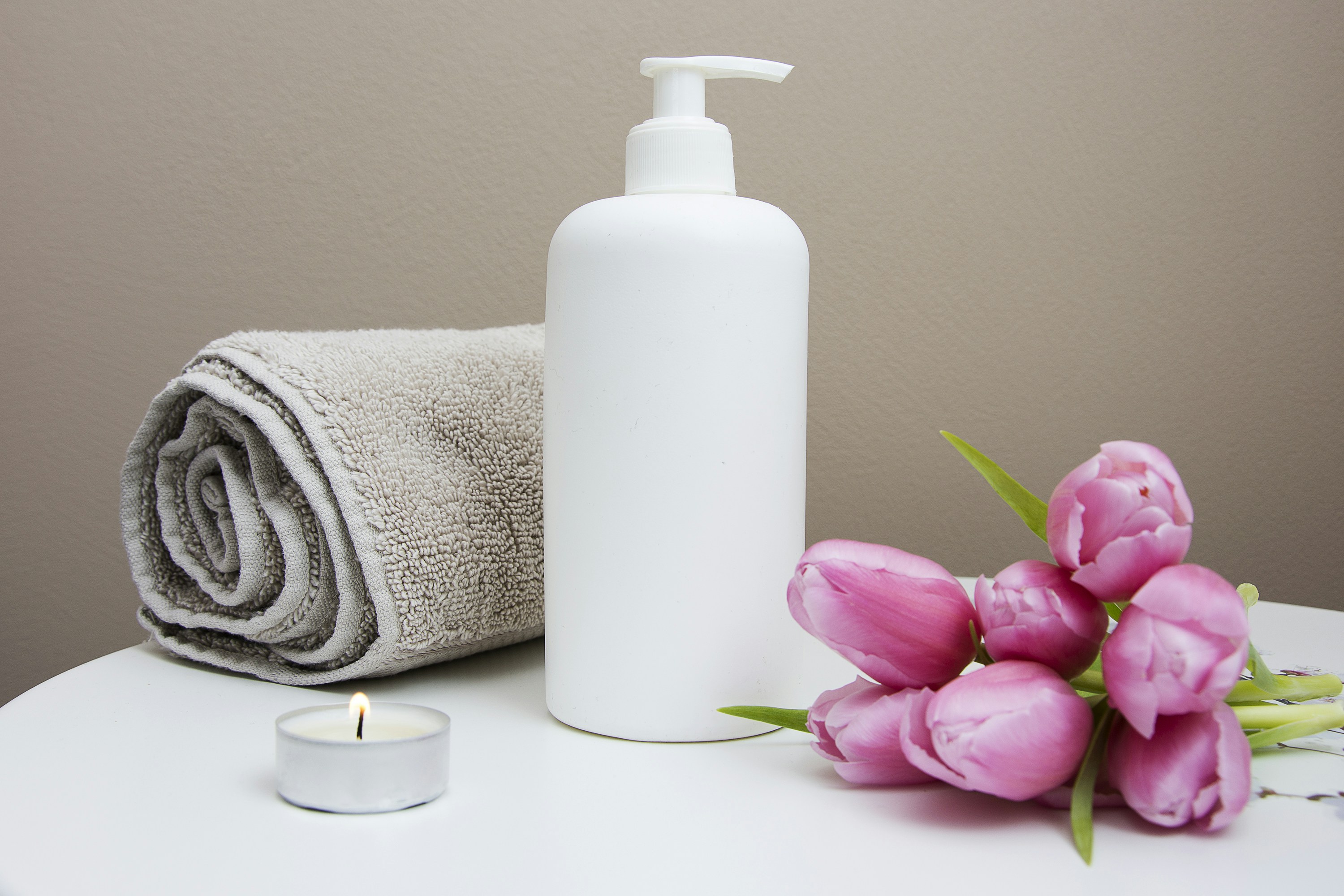Imagine waking up every morning to a vibrant and luminous complexion, a radiant glow that turns heads wherever you go. It’s not just a dream, but a reality waiting for you to unlock. In this article, we will explore the secrets to achieving that ethereal glow through a night skin care routine designed specifically for your skin’s rejuvenation and nourishment. Say goodbye to dull and lifeless skin, and prepare to greet each day with a youthful radiance that will leave everyone wondering about your skincare sorcery.

Exfoliate and Cleanse
Having a night-time skincare routine is essential for achieving and maintaining healthy, glowing skin. The first step in this routine is to exfoliate and cleanse your skin. This helps to remove any dirt, dead skin cells, and excess oil, preparing your skin for the rest of your skincare products.
When choosing an exfoliator, it’s important to pick one that suits your skin type. If you have sensitive skin, opt for a gentle exfoliator with fine particles. For oily or acne-prone skin, a chemical exfoliator with ingredients like salicylic acid or glycolic acid can be beneficial. Gently massage the exfoliator onto your damp face using circular motions, then rinse with lukewarm water.
After exfoliating, it’s time to cleanse your skin. Choose a cleanser that is suitable for your skin type, whether it’s gel, foam, or cream-based. Massage the cleanser onto your face using gentle, upward motions, and rinse thoroughly with water. Cleansing helps to remove any remaining impurities and prepares your skin for the next steps in your night-time routine.
Treat Specific Skin Concerns
After properly cleansing your skin, it’s important to address any specific skin concerns you may have. This could include acne, pigmentation, signs of aging, or dryness. By using targeted skincare products, you can effectively treat these concerns and improve the overall appearance of your skin.
If you are dealing with acne, consider incorporating spot treatments into your night-time routine. Look for products that contain ingredients like benzoyl peroxide or tea tree oil, as they help to reduce inflammation and kill acne-causing bacteria.
For pigmentation issues, such as dark spots or uneven skin tone, brightening serums can be highly effective. These serums often contain ingredients like vitamin C or niacinamide, which help to fade pigmentation and promote a more even complexion. Apply a few drops of the serum to your face and gently massage it into your skin.
To combat signs of aging, consider incorporating retinol into your night-time skincare routine. Retinol, a form of vitamin A, helps to increase cell turnover, minimize the appearance of wrinkles, and improve skin elasticity. Start by using a low concentration of retinol and gradually increase as your skin tolerates it. Apply a thin layer of retinol cream or serum onto clean, dry skin before moisturizing.
If your skin tends to be dry or dehydrated, incorporating a hyaluronic acid serum into your routine can work wonders. Hyaluronic acid attracts and retains moisture, keeping your skin hydrated and plump. Apply a few drops of the serum onto your face and gently pat it in until fully absorbed.

Hydrate and Moisturize
Hydration is key when it comes to achieving glowing skin. After treating any specific skin concerns, it’s important to hydrate and moisturize your skin to keep it healthy and supple.
Choose a moisturizer that is suitable for nighttime use, as night creams are often richer and more nourishing than day creams. Look for ingredients like ceramides, peptides, or hyaluronic acid, as they provide intense hydration and help to repair the skin’s barrier. Apply the moisturizer to your face and neck, gently massaging it in using upward motions.
In addition to your regular moisturizer, consider using a facial oil as part of your night-time routine. Facial oils help to lock in moisture, leaving your skin soft and radiant. Choose an oil that suits your skin type, such as rosehip oil for dry skin or jojoba oil for oily skin. After applying your moisturizer, massage a few drops of the oil onto your face and neck.
Apply a Night Cream
While moisturizing your skin is important, using a dedicated night cream can provide even more benefits. Night creams are specially formulated to rejuvenate and repair your skin while you sleep, helping you wake up with a refreshed and glowing complexion.
When choosing a night cream, look for ingredients like retinol, peptides, or antioxidants. These ingredients help to promote cell turnover, stimulate collagen production, and protect against environmental damage. Apply the night cream onto your cleansed and moisturized face, gently massaging it in using upward motions.

Use Facial Oils
In addition to your regular moisturizer, using facial oils can provide an extra boost of hydration and nourishment to your skin. Facial oils are packed with antioxidants, vitamins, and fatty acids, which help to moisturize, repair, and protect your skin.
Choose a facial oil that suits your skin type and concerns. For dry or mature skin, oils like argan or marula can provide deep hydration and minimize the appearance of fine lines. If you have oily or acne-prone skin, opt for lighter oils like jojoba or rosehip seed, which help to balance excess sebum production.
After applying your moisturizer, warm a few drops of facial oil in your palms and gently press it onto your face and neck. Massage the oil in using upward motions, focusing on any areas of concern. The oil will penetrate deeply into your skin, leaving it soft, moisturized, and radiant.
Apply Eye Cream
The delicate skin around your eyes requires special care and attention. Using an eye cream as part of your night-time routine helps to hydrate, nourish, and protect this sensitive area, reducing the appearance of fine lines, dark circles, and puffiness.
Choose an eye cream that is lightweight and specifically formulated for the eye area. Look for ingredients like hyaluronic acid, peptides, or caffeine, as they help to hydrate, firm, and depuff the skin. Gently pat a small amount of eye cream onto your under-eye area using your ring finger, ensuring not to tug or pull on the skin.
Use a Lip Balm
Don’t forget to show some love to your lips in your night-time skincare routine. Lips often get dry and chapped, especially during colder months. Using a lip balm before bed helps to hydrate and nourish your lips, leaving them soft, smooth, and kissable.
Choose a lip balm that is rich in moisturizing ingredients like shea butter, cocoa butter, or lanolin. Apply a generous amount of lip balm onto your lips, making sure to cover the entire surface. You can also gently massage the lip balm into your lips to further enhance absorption.
Don’t Forget About Your Neck
Your neck is often overlooked when it comes to skincare, but it’s just as important as your face. Neglecting your neck can lead to sagging, wrinkling, and an uneven skin tone. Incorporating your neck into your night-time routine helps to keep this area firm, smooth, and youthful.
After applying your moisturizer and facial oils to your face, take a few extra seconds to massage any remaining products onto your neck. Use upward motions, gently stroking from your collarbone to your jawline. This helps to stimulate blood flow, promote lymphatic drainage, and improve the overall appearance of your neck.
Consider Using Sleeping Masks
For an extra boost of hydration and nourishment, consider incorporating a sleeping mask into your night-time routine. Sleeping masks are highly concentrated treatments that work overnight to repair and rejuvenate your skin, leaving it soft, supple, and radiant in the morning.
Choose a sleeping mask that suits your specific skin concerns and preferences. They come in a variety of formulas, from cream-gels to jelly-like textures. Apply a generous amount of the sleeping mask onto your face and neck, avoiding the eye area. Allow the mask to penetrate your skin overnight, and in the morning, simply rinse off any residue.
Practice Good Sleep Hygiene
While a consistent and effective night-time skincare routine is essential for glowing skin, it’s equally important to practice good sleep hygiene. Getting enough sleep is crucial for your overall health and well-being, and it directly impacts the condition of your skin.
Establish a regular sleep schedule and aim for seven to nine hours of quality sleep each night. Create a calming bedtime routine that allows you to unwind and relax before bed. This could include activities like reading a book, practicing meditation or deep breathing exercises, or taking a warm bath.
Make your bedroom a sleep-friendly environment by keeping it cool, dark, and quiet. Invest in a comfortable mattress and pillows that properly support your body. Consider using a silk pillowcase, as it helps to reduce friction and prevent creases and wrinkles on your face and neck.
By following a comprehensive night-time skincare routine and practicing good sleep hygiene, you can achieve and maintain healthy, glowing skin. Remember to tailor your routine to suit your specific skin type and concerns, and be consistent with your products and techniques. With a little dedication and self-care, you’ll be waking up to radiant skin every morning.

